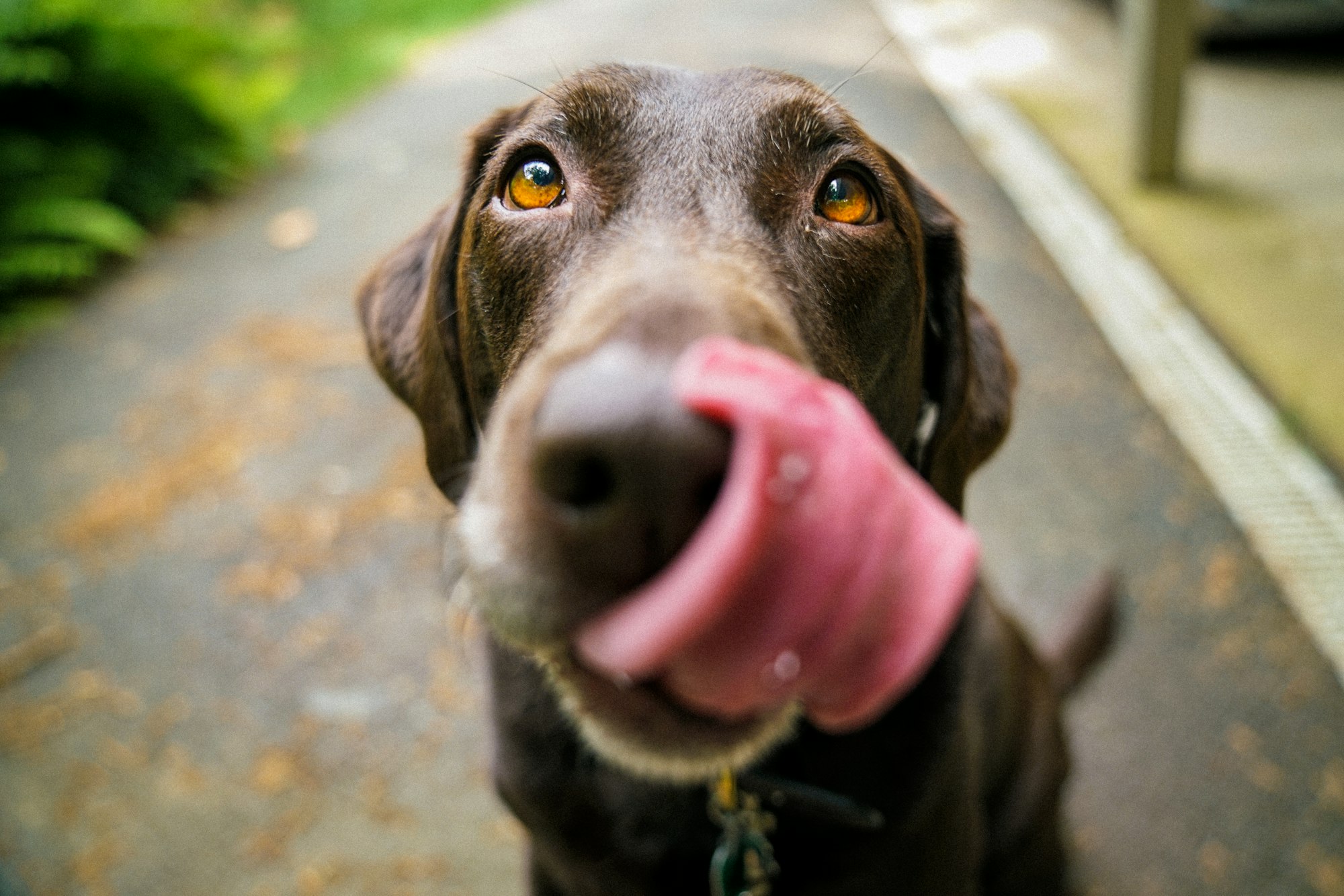As a dedicated and loving pet owner, you've likely observed your dog's behavior, habits, and health closely over time. Suddenly, you notice your canine companion is shedding pounds, and you can't help but ask, "Why is my dog losing weight?" This pressing concern is shared by many pet owners who want the best for their furry friends.
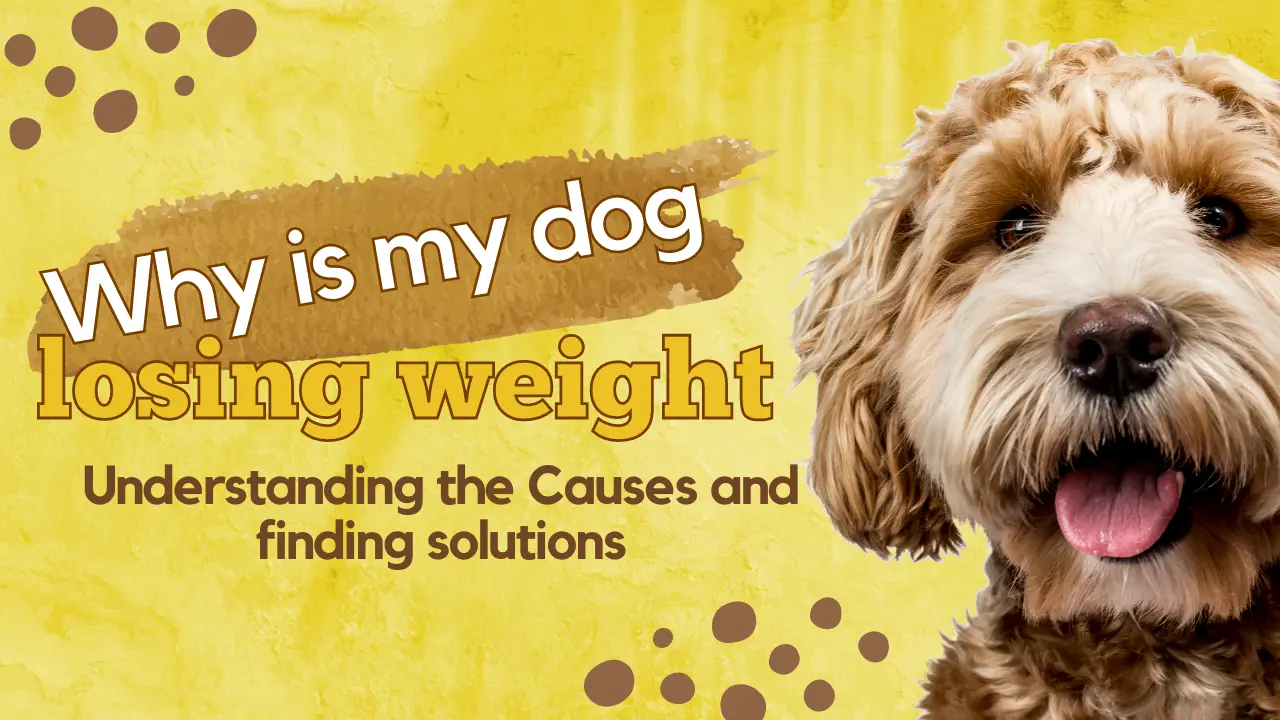
In this insightful article, we delve deeper into the various causes of dog weight loss and offer practical solutions to ensure their well-being. By incorporating real-life examples and engaging storytelling, we aim to create an easily digestible guide that empowers you to take charge of your dog's health, restore its vitality, and strengthen the bond between you and your beloved pet.
Why is my dog losing weight: Common causes
There are several reasons why a dog might lose weight. Let's explore some of the most common ones.
1. Dietary issues
If your dog is losing weight, it could be due to an inadequate diet. Not getting enough calories, poor-quality food, or a sudden change in diet can all contribute to weight loss. For example, if you recently switched to a new dog food brand and noticed your dog is shedding pounds, it could lack the necessary nutrients to maintain its ideal weight.
2. Parasites
Parasites like worms and fleas can cause weight loss in dogs. They deprive the dog of essential nutrients by feeding on their blood or interfering with nutrient absorption in the gastrointestinal tract. Regular deworming and flea prevention are crucial to ensure your dog remains parasite-free and maintains a healthy weight.
3. Illness
Sometimes, the answer to "why is my dog losing weight" lies in an underlying health condition. Canine illnesses like diabetes, cancer, kidney or liver disease, and gastrointestinal disorders can all result in weight loss. If your dog has a sudden, unexplained drop in weight, it is essential to consult a veterinarian for a proper diagnosis and treatment plan.
4. Dental problems
Dental issues like gum disease, tooth decay, or oral infections can cause pain and discomfort, making it difficult for your dog to eat. If your dog is losing weight and has bad breath or difficulty chewing, it could be due to a dental problem that needs to be addressed.
5. Stress and anxiety
Like humans, dogs can experience stress and anxiety, which may lead to weight loss. Changes in routine, separation anxiety, or a noisy environment can all contribute to stress in dogs. Identifying and addressing the source of your dog's anxiety and addressing it can help them regain their appetite and lose weight.
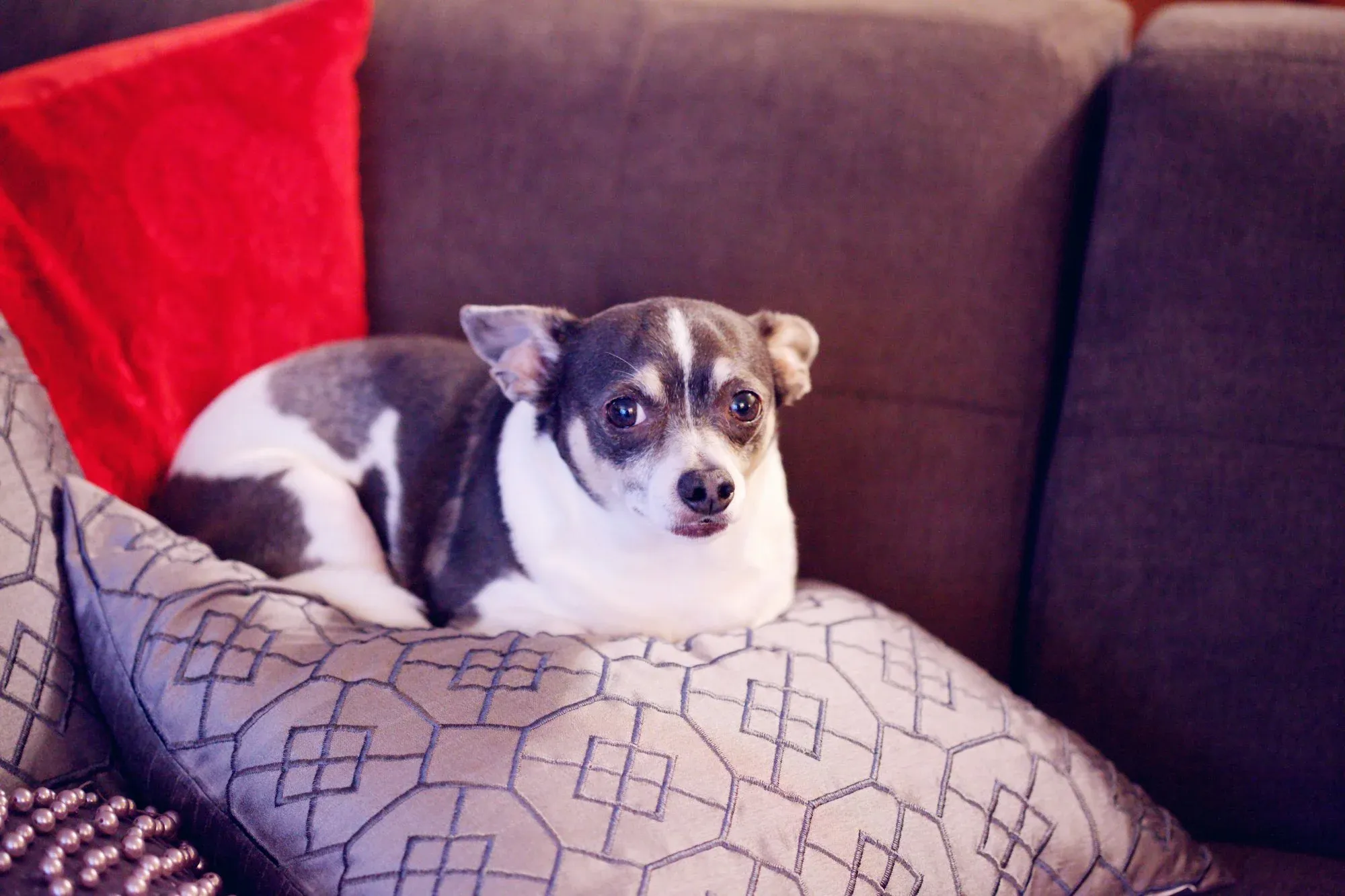
What to do if your dog is losing weight
If you're worried about your dog's weight loss, here are some steps to take:
Step 1: Monitor your dog's weight and food intake
Keep track of your dog's weight and food consumption. This will help you determine if the weight loss is due to decreased food intake or an underlying issue.
Step 2: Rule out parasites
Ensure your dog is up-to-date on deworming and flea prevention treatments. This will help eliminate parasites as a possible cause of weight loss.
Step 3: Evaluate your dog's diet
Assess your dog's diet to ensure they receive the proper nutrients and calories for size, age, and activity level. Consult your veterinarian if you need guidance on the best diet for your dog.
Step 4: Consult a veterinarian
If you've ruled out parasites and dietary issues, and your dog continues to lose weight, it's time to consult a veterinarian. They will conduct a thorough examination and run necessary tests to diagnose any underlying health conditions that could be causing your dog's weight loss.
Step 5: Address any dental issues
If your dog is experiencing dental problems, have them checked by a veterinarian, who may recommend a dental cleaning or other treatments to alleviate pain and discomfort.
Step 6: Manage stress and anxiety
Identify and address any stressors or anxiety-inducing situations in your dog's life. Consider consulting a professional dog trainer or behaviorist for advice on managing your dog's stress and anxiety.
Tips for helping your dog gain weight
Once you've identified the cause of your dog's weight loss, you must help them regain their ideal weight. Here are some helpful tips:
1. Feed your dog a high-quality, calorie-dense diet
Choose a nutritious, calorie-dense dog food that provides the necessary nutrients for weight gain. Look for high-quality ingredients like real meat, whole grains, and healthy fats.
2. Consider feeding smaller, more frequent meals
Feeding your dog smaller meals throughout the day can help increase their calorie intake and promote weight gain. This approach is particularly helpful for dogs with gastrointestinal issues or recovering from an illness.
3. Offer enticing and nutritious treats
Treats can be an excellent way to encourage your dog to eat more and gain weight. Choose healthy, high-calorie options like peanut butter, cooked eggs, or freeze-dried liver. Ensure treats make up no more than 10% of your dog's daily calorie intake.
4. Provide a comfortable and stress-free environment
Creating a calm and comforting environment can help reduce stress and anxiety, which may improve your dog's appetite. Provide a quiet space for your dog to eat, and minimize any distractions during mealtime.
5. Monitor your dog's progress
Regularly weigh your dog and adjust their food intake as needed. Consult your veterinarian if your dog is not gaining weight or if you have concerns about its health.
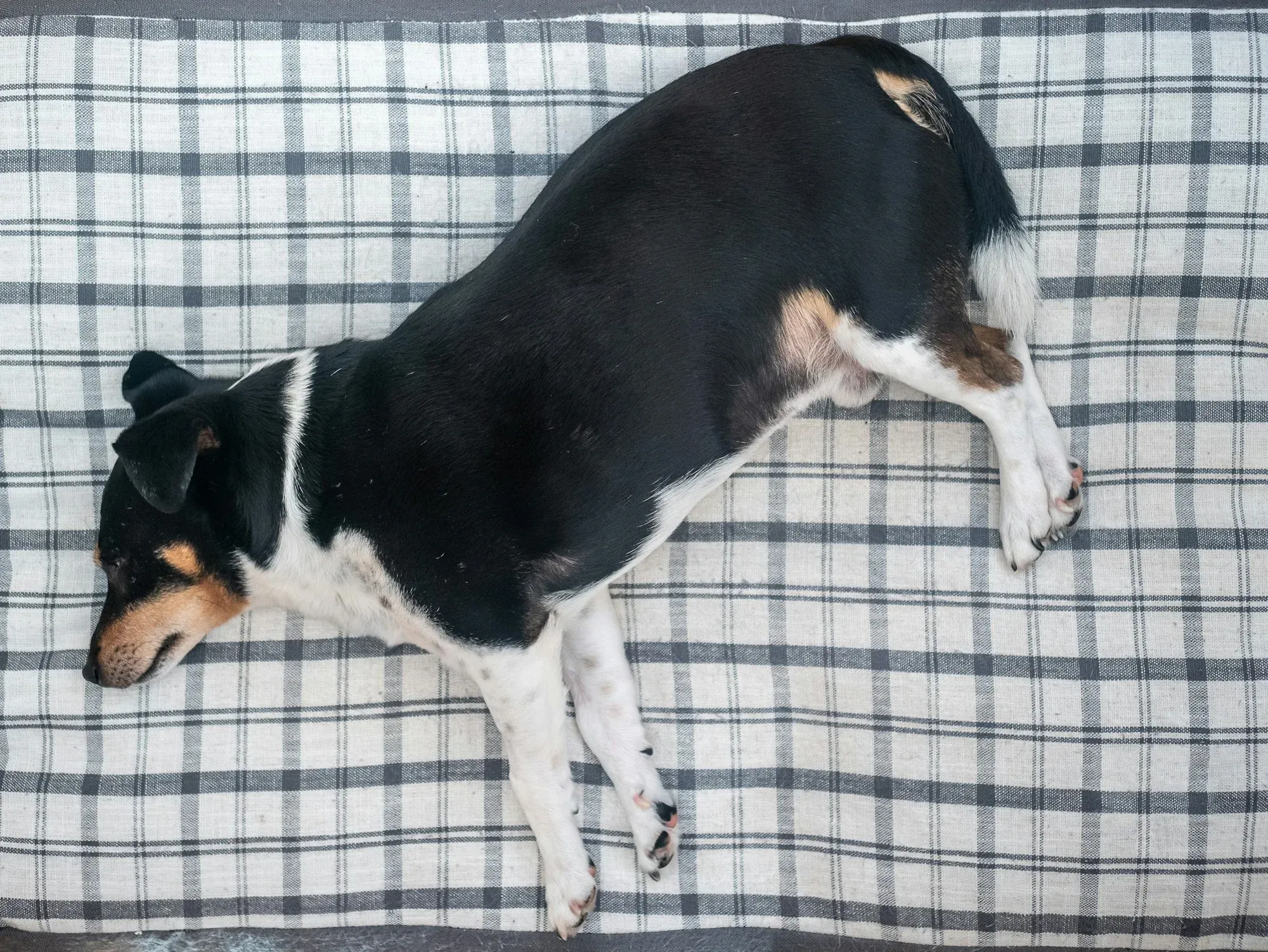
The importance of exercise in maintaining a healthy weight
While diet plays a crucial role in helping your dog gain weight, it's essential not to overlook the importance of exercise. Physical activity helps dogs maintain a healthy weight and improves their overall well-being.
1. Choose the right type of exercise for your dog
Consider your dog's age, breed, and health when planning its exercise routine. For example, a young and energetic dog may benefit from running or playing fetch, while a senior dog with arthritis may be better suited for gentle walks or swimming.
2. Gradually increase the intensity and duration of exercise
As your dog gains weight and its health improves, you can gradually increase the intensity and duration of its exercise. This will help build muscle mass and further support healthy weight gain.
3. Monitor your dog's progress
Mental stimulation is as important as physical exercise for a dog's overall health. Engage your dog in activities that challenge their mind, such as puzzle toys, hide-and-seek games, or training sessions. This can help reduce stress and anxiety, which may contribute to weight loss.
The Role of Supplements in supporting weight gain
Sometimes, your veterinarian may recommend supplements to support your dog's weight gain and overall health. Supplements like probiotics, fish oil, or multivitamins can provide additional nutrients that may be lacking in your dog's diet. Always consult your veterinarian before adding supplements to your dog's regimen, and follow their guidance on the appropriate dosage and duration of use.
Preventing future weight loss in your dog
Once your dog has regained their ideal weight, it's essential to take preventive measures to ensure they maintain it. Here are some strategies to help your dog stay at a healthy weight:
1. Regular veterinary checkups
Schedule routine veterinary visits to monitor your dog's health and identify potential issues early. Regular checkups can help prevent weight loss due to underlying health problems.
2. Maintain a consistent diet and feeding schedule
Stick to a high-quality diet and consistent feeding schedule to ensure your dog receives nutrients and calories. Avoid making sudden changes to their diet without consulting your veterinarian.
3. Keep your dog active
Regular exercise is crucial for maintaining a healthy weight and preventing obesity in dogs. Ensure your dog gets enough physical activity to support their health and well-being.
The Role of Hydration in your dog's Health
Hydration is critical to your dog's overall health and well-being, and it's essential not to overlook its importance. Dehydration can exacerbate weight loss and lead to various health issues. Here are some tips to ensure your dog stays adequately hydrated:
1. Provide fresh water at all times
Make sure your dog always has access to clean, fresh water. Regularly check and refill their water bowl to encourage proper hydration.
2. Monitor your dog's water intake
Pay attention to how much water your dog is drinking each day. If you notice a sudden increase or decrease in their water intake, consult your veterinarian, as this could indicate an underlying health issue.
3. Offer water during exercise and outdoor activities
Bring a portable water bowl and offer water frequently when exercising or engaging in outdoor activities with your dog. This is especially important during hot weather or extended periods of physical activity.
The impact of weight loss on your dog's mood and behavior
Weight loss in dogs can significantly impact their mood and behavior. A dog losing weight may become lethargic, less playful, and less interested in interacting with its family. Additionally, weight loss can make your dog more susceptible to stress and anxiety, further exacerbating their condition.
By addressing the root cause of your dog's weight loss and helping them regain a healthy weight, you can improve its mood, behavior, and overall quality of life. Remember, a happy and healthy dog is more likely to be active and engaged, supporting their long-term well-being.
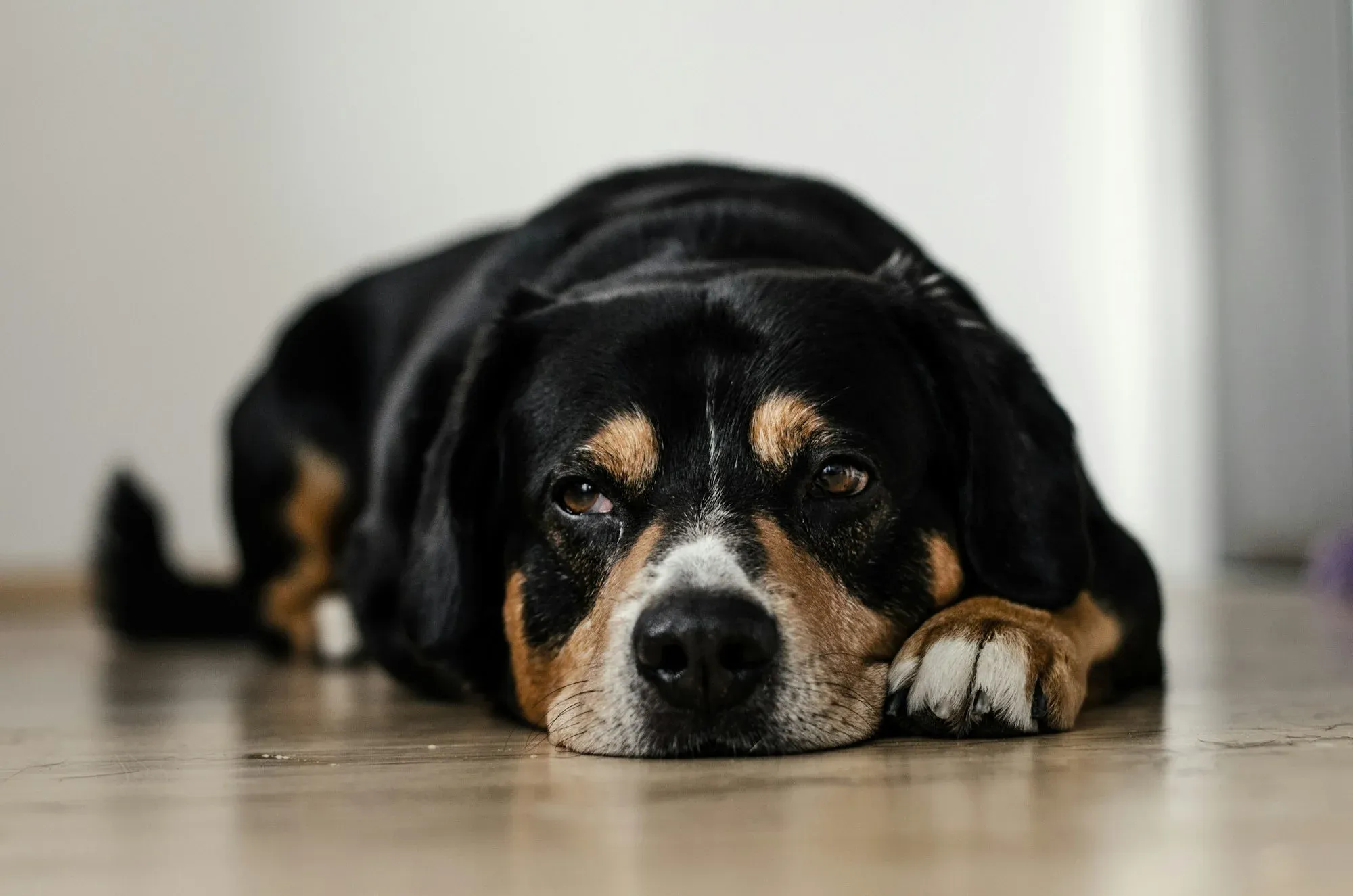
The importance of social support for your dog's health
Finally, it's essential to recognize social support's role in your dog's health and well-being. Dogs are social creatures and thrive on interaction with their human family members and other dogs. Socialization can help reduce stress and anxiety, contributing to weight loss.
To support your dog's social needs, consider engaging in the following activities:
1. Spend quality time with your dog
Set aside time each day to interact with your dog, whether through play, cuddling, or simply sitting together. This helps strengthen your bond and provides emotional support for your dog.
2. Enroll your dog in a training class
Training classes help teach your dog valuable skills and provide opportunities for socialization with other dogs and people.
3. Arrange playdates with other dogs
If your dog enjoys the company of other dogs, arrange playdates with friends' or neighbors' dogs. This can provide valuable social interaction and help keep your dog active and engaged.
In a Nutshell
In conclusion, weight loss in dogs can result from various factors, ranging from medical conditions to dietary and lifestyle changes. Understanding the underlying causes is essential in determining the appropriate course of action to help your dog regain and maintain a healthy weight. By closely monitoring your dog's behavior, appetite, and overall well-being, you can quickly identify any abnormalities and consult with a veterinarian to address the issue.
In many cases, weight loss can be reversed through proper nutrition, regular exercise, and timely medical intervention. Being proactive and vigilant as a pet owner is the key to ensuring your dog's long-term health and happiness. Remember that weight loss may be a symptom of an underlying issue, so seeking professional advice should always be your first step. By working closely with your veterinarian, you can create a tailored plan to help your furry friend return to their optimal weight and live a long, healthy life.
For more helpful articles about pet-parenting tips, check out the Off Leash blog at TryFi.com.
Want to know more about TryFi.com? The Fi Dog Collar is a GPS tracking collar that not only keeps track of your dog’s location, activity levels, and sleep patterns, but it also alerts you if your dog escapes your backyard. This is the fastest way to find your dog after an escape. Try the Fi Dog Collar today!
